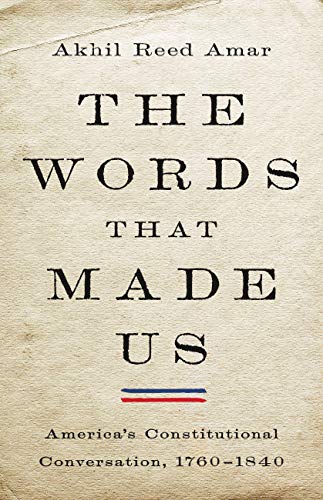10 US Colonial Period History Books That Illuminate Early America
Selected by Joanne Freeman, Scott Weinger, and Merritt Roe Smith for deep insights into US Colonial Period History




What if the stories we tell about America's colonial beginnings only scratch the surface? The US Colonial Period is rife with complexities that shaped not just a nation but the very ideals it stands for today. Refreshing insights from scholars like Joanne Freeman, a Yale professor who draws attention to the rich political fabric behind events like the Boston Massacre, challenge the simplistic narratives many hold. Meanwhile, historian Scott Weinger points to frontier conflicts in works like The Taking of Jemima Boone that reveal the gritty realities beneath the mythos.
Experts such as Merritt Roe Smith and Michael Zuckerman deepen our grasp of how industrial innovation and economic forces intertwined with political upheaval during the Revolution, highlighting how manufacturing prowess was as central as battlefield courage. These voices together paint a layered picture of colonial life, from the struggles over freedom and slavery explored by Edmund Morgan to the racial dynamics that Robert Parkinson unpacks.
While these expert-curated books provide proven frameworks, readers seeking content tailored to their specific interests, background, or goals might consider creating a personalized US Colonial Period History book that builds on these insights, offering a learning path as unique as your curiosity.
Recommended by Annette Gordonreed
Professor of Law and History, Harvard
“@CharlesPPierce No. Just a regular class. Interesting book.” (from X)
by Akhil Reed Amar··You?
by Akhil Reed Amar··You?
Akhil Reed Amar, a Sterling Professor at Yale with deep expertise in constitutional law and history, challenges conventional narratives by focusing on the ongoing constitutional debates from 1760 to 1840 rather than just the founding moment. You gain insight into how ordinary Americans and statesmen grappled with issues like westward expansion, slavery, and judicial power, illustrated through detailed chapters on ratification and early legal controversies. This book suits anyone seeking a nuanced understanding of the Constitution’s formative years beyond mere text, especially those interested in how legal and popular conversations shaped America’s identity. It offers a richly layered perspective rather than simplified historical accounts.
Recommended by Michael Zuckerman
University of Pennsylvania historian
“Manufacturing Independence tells two brilliantly interwoven stories, and it tells them both wondrously well. In the one, we discover how a handful of unsung heroes made the weapons that Washington’s army had to have to win the war for independence. In the other, we learn how the industrial revolution first came to America. Each of them is a history we’ve never had before. Together, in surprising and revelatory ways, they transform our understanding of our Revolutionary origins and our modern economy.” (from Amazon)
by Robert F. Smith··You?
by Robert F. Smith··You?
After extensive research into early American industry, Robert F. Smith developed a detailed account of how the Continental Congress mobilized manufacturing during the Revolutionary War. You learn how the colonies overcame severe supply chain disruptions by innovating weapons production through national arsenals and partnerships with private manufacturers, directly impacting battles like Saratoga and Yorktown. This book benefits anyone interested in the intersection of military history and industrial development, offering insights into the foundational industrial strategies that shaped the young nation. The narrative goes beyond politics to explore how wartime necessity accelerated America's entry into the Industrial Revolution.
by TailoredRead AI·
by TailoredRead AI·
This tailored book explores the rich and complex history of the US Colonial Period, crafted to match your unique background and goals. It offers an engaging journey through political, social, and economic developments that shaped early America, focusing on the topics you find most compelling. By blending deep historical knowledge with a personalized lens, this book reveals the nuanced interplay of colonial politics, frontier challenges, racial dynamics, and cultural transformations. It examines key events and figures with precision, helping you build a clear and focused understanding tailored to your interests. This approach ensures you gain meaningful insights efficiently, making your study of colonial America both rewarding and uniquely yours.
Recommended by Annette Gordonreed
Professor of Law and History, Harvard
“Rob has a new book, “Thirteen Clocks: How Race United the Colonies and Made the Declaration of Independence”, that reworks The Common Cause on a smaller scale. Equally brilliant.” (from X)
by Robert G Parkinson··You?
by Robert G Parkinson··You?
Robert G. Parkinson, an associate professor of history at Binghamton University, takes a critical look at the formation of American unity in this book. By examining the colonial news networks during the crucial fifteen months before the Declaration of Independence, he reveals how racial fears about Native Americans and enslaved Blacks were deliberately amplified to rally support for independence. You’ll gain insight into the interplay between race and politics during the Revolutionary era, particularly how patriot leaders leveraged these fears to unify the colonies. This book suits anyone interested in the deeper, often uncomfortable motives behind America’s founding beyond the usual liberty narratives.
Recommended by Joanne Freeman
History professor and early US politics expert
“@SerenaZabin @ericaadunbar @lmchervinsky @AlexisCoe No problem! You’ll be great. If this relates to your coming book (!), you might even be able to describe how a map shows something dramatically, for ex.” (from X)
by Serena Zabin··You?
by Serena Zabin··You?
What if everything you knew about the Boston Massacre was wrong? Serena Zabin argues that this pivotal event wasn’t just a political flashpoint but also a deeply personal clash shaped by the lives of British soldiers’ families living alongside Bostonians. You’ll find yourself immersed in vivid stories of regimental wives, children, and neighbors whose intertwined fates complicate the usual narrative. By examining original sources and daily interactions—from shared baptisms to neighborhood disputes—Zabin reveals how these human connections fueled revolutionary tensions. This book suits anyone eager to see the American Revolution through fresh eyes, especially those interested in the social fabric behind historic events.
Recommended by Scott Weinger
National treasure
“Hey here's a birthday plug -- my pal, genius writer @MatthewPearl has a new book out today, THE TAKING OF JEMIMA BOONE. Check it out, it's getting great reviews and NOT just from his mom.” (from X)
by Matthew Pearl·You?
What if everything you knew about early American frontier conflicts was challenged? Matthew Pearl draws from a dramatic 1776 kidnapping to explore the tangled relationships between colonial settlers and Native tribes in Kentucky. You’ll gain insight into the complex dynamics of westward expansion, including key figures like Daniel Boone and the indigenous leaders caught in a struggle over land and power. Chapters vividly reconstruct the rescue efforts and political reverberations, revealing how this single event shaped broader American history. This book suits those curious about the gritty realities behind colonial myths and the nuanced stories often overlooked in traditional histories.
by TailoredRead AI·
by TailoredRead AI·
This personalized book offers a thorough exploration of the American Revolution and colonial politics, tailored specifically to your background and interests. It guides you through the complex political landscape of the era, examining key events, figures, and ideological shifts that defined the path to independence. By focusing on your specific goals, the book synthesizes expert knowledge into a clear and engaging 90-day learning journey that reveals the nuanced forces shaping early America. Combining a rich examination of revolutionary causes, colonial governance, and grassroots movements, this tailored approach helps you gain a deeper understanding of how political strategies and social dynamics intertwined. The content matches your interests precisely, enabling a rapid yet profound transformation in your grasp of US Colonial history.
Recommended by Cass Sunstein
Harvard professor; former White House administrator
“Amazing, sensational, brilliant, wise new book from Jon Elster: America Before 1787.” (from X)
Jon Elster, a scholar blending history and social science, explores the complex dynamics leading to the American Revolution in this detailed volume. You’ll gain insights into the uneasy relations between Britain and its colonies, the role of emotions and enthusiasm in political mobilization, and how strategic "divide and rule" tactics played out on both sides of the Atlantic. The book uncovers the mechanisms behind collective action movements and institutional decisions that set the stage for the U.S. Constitution. If you're interested in understanding the social and political forces that unraveled colonial governance, this book offers a nuanced, evidence-based perspective that goes beyond traditional narratives.
by Edmund S. Morgan··You?
by Edmund S. Morgan··You?
After decades as Sterling Professor Emeritus at Yale and a Pulitzer Prize winner, Edmund S. Morgan offers a nuanced exploration of the paradoxical relationship between liberty and slavery in colonial Virginia. You’ll gain insight into how the founders’ commitment to freedom coexisted uneasily with their ownership of slaves, with detailed analysis of Virginia’s social and political structures. The book unpacks this contradiction through vivid case studies, such as George Washington’s role as a slave owner, providing a critical lens on early American identity. If you seek to understand the complexities behind the origins of American freedom and slavery, this book presents a thought-provoking examination grounded in historical rigor.
by Don Jordan; Michael Walsh··You?
by Don Jordan; Michael Walsh··You?
Don Jordan and Michael Walsh, seasoned historians, unravel a neglected chapter of colonial history by documenting the lives of thousands of Britons enslaved in America’s early colonies. Their research, drawn from letters, diaries, and legal archives, reveals the harsh realities faced by indentured servants, convicts, and exploited migrants, exposing a system as brutal as black slavery in its treatment of white individuals. You gain insight into the economic and social mechanisms that sustained this cruel trade, including the use of forced labor in tobacco fields and the trafficking of convicts. This book challenges common historical narratives, making it essential for anyone seeking a fuller understanding of exploitation during the US colonial period.
Recommended by Joanne Freeman
History professor at Yale, expert on early US politics
“Great book!” (from X)
by Alejandra Dubcovsky·You?
by Alejandra Dubcovsky·You?
Alejandra Dubcovsky challenges the notion that early colonial America was disconnected and uninformed, revealing how residents of the American South navigated a complex web of oral communication networks long before formal mail or printing systems existed. You learn how information flowed through unconventional channels — spies, traders, missionaries, and chance encounters — shaping alliances and social order in a region fraught with diverse cultural boundaries. The book dives into how communication was less about speed and more about power, relationships, and the politics of information exchange. If you want a nuanced understanding of how knowledge operated in early American society, this book offers intricate insights grounded in social and geopolitical realities.
by Michael G. Laramie··You?
by Michael G. Laramie··You?
Michael G. Laramie's extensive expertise in colonial military history shines through in this detailed exploration of Queen Anne's War, the lesser-known but pivotal conflict in early 18th-century North America. Drawing on a wealth of English, French, and Spanish primary sources, Laramie takes you from the political maneuverings in Europe to the brutal frontier skirmishes across the continent, illuminating the complex alliances between European powers and Native American groups. You'll gain a nuanced understanding of how this war shaped colonial identities and territorial claims, with chapters detailing key events like the siege of St. Augustine and the decimation of Spanish missions in Georgia. This book suits anyone keen on deepening their grasp of geopolitical and cultural shifts during the US colonial period.
Get Your Custom Colonial History Guide Fast ✨
Stop wading through dozens of books—get targeted US Colonial Period History insights in minutes.
Trusted by historians and enthusiasts worldwide
Conclusion
A clear theme emerges from these books: the US Colonial Period was a crucible of contradictory forces—liberty and slavery, unity and division, tradition and innovation. If you're grappling with the complexities of early American identity, start with American Slavery, American Freedom for its incisive look at foundational paradoxes. For rapid immersion in industrial and military facets, pair Manufacturing Independence with Queen Anne's War to see how conflict and economy intertwined.
Those fascinated by social and political dynamics should explore The Words That Made Us alongside Thirteen Clocks to understand constitutional debates and racial politics that shaped unity. Alternatively, you can create a personalized US Colonial Period History book to bridge the gap between general principles and your specific situation.
These carefully selected books are your gateway to accelerating your understanding of America's early years, equipping you with nuanced perspectives that challenge assumptions and enrich your grasp of history’s enduring impact.
Frequently Asked Questions
I'm overwhelmed by choice – which book should I start with?
Start with The Words That Made Us by Akhil Reed Amar. It lays a solid foundation by exploring constitutional debates crucial to the colonial era, making complex ideas accessible and engaging.
Are these books too advanced for someone new to US Colonial Period History?
Not at all. Many, like The Boston Massacre by Serena Zabin, offer vivid storytelling that brings history to life, making them approachable for newcomers eager to learn.
What's the best order to read these books?
Begin with broad political and social histories such as America before 1787, then explore thematic works like Manufacturing Independence and Thirteen Clocks to deepen your understanding of specific facets.
Do I really need to read all of these, or can I just pick one?
You can pick one based on your interest—whether it's frontier stories, constitutional history, or race relations—but reading several offers a richer, more nuanced perspective.
Are there any books here that contradict each other?
Some books explore different perspectives, like Thirteen Clocks and American Slavery, American Freedom, which might challenge traditional narratives. This diversity helps you grasp the complexity of the period.
How can I get tailored insights without reading multiple full books?
These expert books offer deep knowledge, but personalized content can tailor that wisdom to your needs. Try creating a personalized US Colonial Period History book to efficiently focus on what matters most to you.
📚 Love this book list?
Help fellow book lovers discover great books, share this curated list with others!
Related Articles You May Like
Explore more curated book recommendations









